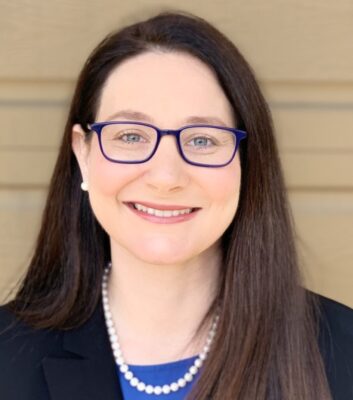As we approach Passover, we are reminded of the incredible journey of the Israelites from slavery in Egypt to freedom. Passover is a time to reflect on the miracles that shaped our history and to renew our sense of hope and faith in the possibility of redemption.
The recent atrocities in Israel, particularly since Oct. 7, 2023, have weighed heavily on my heart, and the challenge of maintaining an open heart in the face of overwhelming news has been a constant internal battle.
In the Passover story, we read that God repeatedly hardened Pharaoh’s heart, creating a tension between divine intervention and Pharaoh’s stubborn resistance. At first glance, it may seem perplexing that God would harden Pharaoh’s heart. Why not simply allow Pharaoh to relent, to let the Israelites go free without all the plagues? The Torah offers no simple answer, but one interpretation is that the repeated hardening of Pharaoh’s heart served to demonstrate the strength of the miracles, the persistence of God’s will and the ultimate triumph of freedom. Each hardened heart, each refusal to release the Israelites, created an opportunity for a greater miracle. With each subsequent plague, Pharaoh’s resistance solidified the magnitude of what was happening. The deliverance of the Israelites was not just an act of liberation but a monumental display of God’s power and love.
As we read this story, we might be tempted to think of Pharaoh’s hardened heart as something distant, something we could never relate to. Yet, in the midst of our own challenges and suffering, it becomes clear that the metaphor of a hardened heart is all too real. It is easy to allow ourselves to become numb in the face of relentless pain and tragedy, especially when we are bombarded with heartbreaking news every day. Praying for the safety and return of hostages every day, and then learning the fate of the Bibas family was devastating. Their faces will forever be etched in my memory.
The temptation to harden our hearts is real. It is a defense mechanism — a way to shield ourselves from the overwhelming weight of sorrow and anger.
I find myself struggling with this very issue. In the face of relentless headlines of suffering, of loss, of grief, it is difficult not to feel overwhelmed, angry and, at times, to close off emotionally, to protect oneself from the constant barrage of news and images, to guard against the heartbreak that seems unending. But deep down, I know that this would be a betrayal of the values that sustain me — values of hope, compassion and the belief in the possibility of healing, even in the darkest times.
I am in awe of those that can keep their soft hearts even in the face of evil and suffering. I was shocked to hear from Gadi, an 80-year-old man who was held hostage by Hamas for 483 days. After his release, he pledged to return to Gaza, a war-torn region, to teach Palestinians how to farm. Despite having suffered unimaginable trauma, Gadi chose to extend an olive branch — to sow seeds of peace, even in the most difficult circumstances. It is a testament to the strength of the human spirit and to the belief that healing can begin even in the most broken places.
As I reflect on Gadi’s example, I am reminded that it is possible to hold on to hope without being naive. It is not about ignoring the pain or evil pretending that everything will be okay without effort. Rather, it is about finding the strength to remain open-hearted in the face of adversity. It is about choosing not to let our hearts become hardened, even when the world around us seems bent on tearing us apart.
This is not an easy task. It requires courage, vulnerability and a deep sense of faith. It is a fine balance, one that demands we face the harsh realities of the world without allowing them to close us off from one another. It asks us to remember that we are not just individuals enduring hardship, but part of a larger community — a people who have known suffering and liberation, who have witnessed both miracles and tragedies and who are called to build a future of peace, even in the face of hate and persecution.
As we celebrate Passover this year, may we draw strength from the story of the Exodus and from the courage of those who choose hope over despair. Let us remember that while we cannot control the circumstances of our lives, we do have the power to choose how we respond. Let us choose, as a community, to keep our hearts open, to extend compassion and love.
May this Passover be a reminder of the power of miracles, the strength of the human spirit and the unbreakable hope that sustains us all, even when the world seems darkest.



